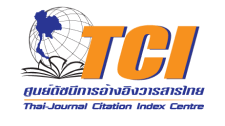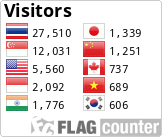Policies
Privacy and confidentiality policy AMJAM places a high priority on the privacy and data protection of its users - whether authors, readers, editors or website visitors. This policy outlines our commitment to handling and securing personal information in alignment with professional standards and research ethics. By accessing and using our website and services, users agree to this privacy and confidentiality policy.
AMJAM collects user information to provide the best possible experience and services. This includes voluntarily provided personal identification and contact details, such as name, affiliation, email, and phone number. Additional data may include information about users' education, employment, professional titles, and areas of expertise. We may collect non-personally identifiable information (i.e., information of an anonymous nature) such as Internet Protocol (IP) addresses, device type, browser type, operating system, page views, usage, and similar data from your visits to our websites.
Any personal information received by AMJAM will only be used to:
- Administer the AMJAM website
- Personalize the website for authors
- Enable authors' access to and use of the website services
- Process a manuscript
- Publish a manuscript
- Send authors communication about a manuscript
Use of generative AI and AI-assisted technologies in writing
Authors who incorporate AI and AI-assisted technologies into their writing process should do so with the intention of enhancing readability and language, rather than substituting essential authoring tasks such as generating scientific, pedagogic, or medical insights, drawing scientific conclusions, or offering clinical recommendations. The application of this technology should always be under human oversight and control, and all work should be subjected to careful review and editing. AI has the potential to produce content that sounds authoritative but may be incorrect, incomplete, or biased. Ultimately, authors bear the responsibility and accountability for the content they produce.
Authors must openly disclose their use of AI and AI-assisted technologies in their manuscripts, and a statement to this effect will be included in the published work. Such transparency fosters trust among authors, readers, reviewers, editors, and contributors and ensures compliance with the terms of use for the relevant tools or technologies. Authors should refrain from attributing authorship to AI or listing AI as a co-author. Authorship entails responsibilities and tasks that can only be fulfilled by humans.
Use of AI in peer review To protect authors' rights and research confidentiality, this journal does not currently allow the use of Generative AI or AI-assisted technologies such as ChatGPT or similar services for peer review. We are actively evaluating compliant AI tools and may revise this policy in the future.
Affiliations Authors must list all relevant affiliations to attribute where the research was approved and/or supported and/or conducted. For non-research articles, authors must list their current institutional affiliation. In cases where an author has moved to a different institution before the article has been published, they should list the affiliation where the work was conducted, and the current affiliation and contact details should be listed in the acknowledgment section.
Acknowledgment
Any individuals who have contributed to the article (e.g. general supervision, acquisition of funding, study design, data collection, data analysis, technical assistance, formatting-related writing assistance, scholarly discussions which significantly contributed to developing the article, etc.), but who do not meet the criteria for authorship should be listed by name and affiliation in an 'Acknowledgments' section. It is the responsibility of the authors to notify and obtain permission from those they wish to identify in this section. The process of obtaining permission should include sharing the article so that those being identified can verify the context in which their contribution is being acknowledged.
Groups of persons who have contributed materially to the article but whose contributions do not justify authorship may be listed under such headings as “clinical investigators” or “participating investigators,” and their function or contribution should be described - for example, “served as scientific advisors,” “critically reviewed the study proposal,” “collected data,” or “provided and cared for study patients.” Because readers may infer their endorsement of the data and conclusions, these persons must give written permission to be acknowledged.
Any assistance from AI tools for content generation (e.g. large language models) and other similar types of technical tools which generate article content, must be clearly acknowledged within the article. It is the responsibility of authors to ensure the validity, originality, and integrity of their article content. Authors are expected to use these types of tools responsibly and in accordance with our editorial policies on authorship and principles of publishing ethics.
Citations
Research and non-research articles must cite relevant, timely, and verified literature (peer-reviewed, where appropriate) to support any claims made in the article. The authors must avoid excessive and inappropriate self-citation or prearrangements among author groups to inappropriately cite each other's work, as this can be considered a form of misconduct called citation manipulation.
The authors of a non-research article (e.g. a Review or Letter to The Editor) should ensure the cited references are relevant and provide a fair and balanced overview of the current state of research or scholarly work on the topic. The references should not be unfairly biased toward a particular research group, organization, or journal.
Data Sharing Expectations Authors are encouraged to make their data available to the public whenever possible, except where privacy, confidentiality, or legal constraints apply. Data should be shared in a manner that allows verification of results and the reuse of data for further research.
Desk rejection policy
- The topic / scope of the study is not relevant to the field of the Journal.
- There are publication ethics problems, non-adherence to international standard guidelines, and plagiarism (set at a similarity index of higher than 25 percent).
- The topic does not have a sufficient impact, nor does it sufficiently contribute new knowledge to the field.
- There are flaws in the study design.
- The objective of the study is not clearly stated.
- The study of the organization is problematic and/or certain components are missing.
- There are problems in writing or series infelicities of in the style of grammar.
- The manuscript does not follow the submission guideline of the Journal.



